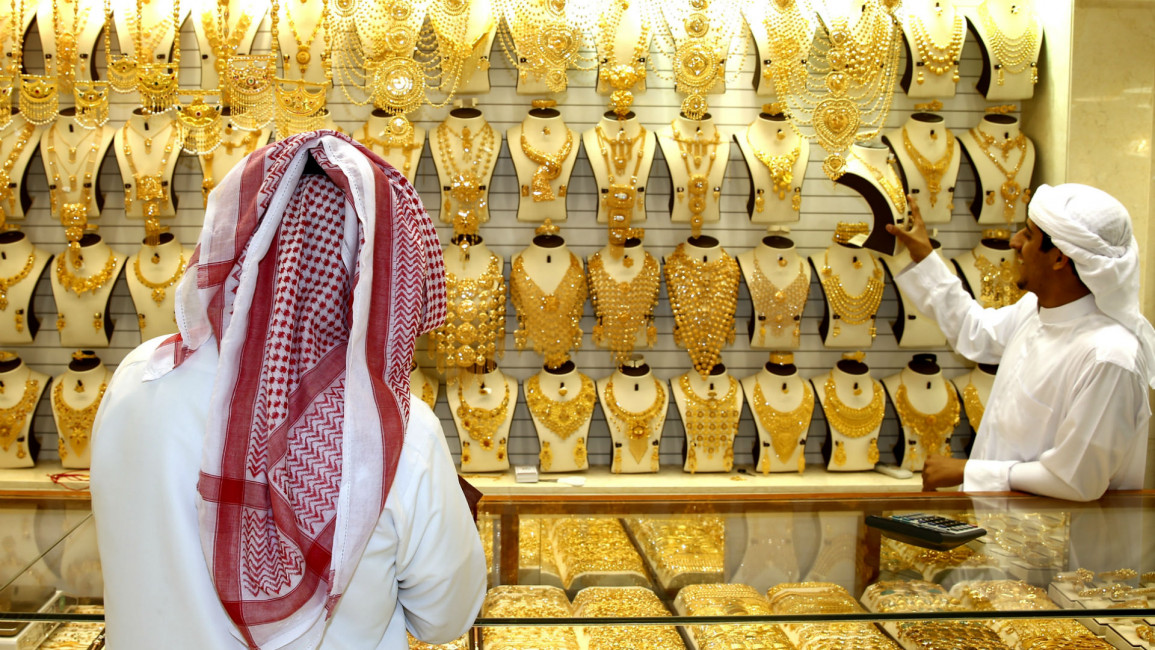UAE still allowing trade in 'conflict gold'
The UAE is among states that continue to allow the trade in "conflict gold" from war-torn African states despite global efforts to stamp it out, a UN investigation has found.
The UN report, published this week, reveals that gold produced in mines controlled by rebel groups and rogue militias in the Democratic Republic of Congo is exported to Dubai through traders in Uganda.
The trade generates huge amounts of income for groups to fund fighting in the DR Congo, where millions have died in 20 years of conflict, and other African nations.
The UN report was described as shocking by the Global Witness group, which has campaigned for a decade to stop the trade.
According to the UN, gold from rebel-controlled mines in DR Congo is sold "without any difficulty" in Dubai, and trade rules implemented in 2013 by the emirate had little effect.
The UN highlighted "the willingness of jewellers in the gold souk of Dubai's Deira district to buy gold from the [DR] Congo without asking questions about its origin and without requesting proof that export taxes had been paid".
The experts said Dubai's new rules fell short of recommendations the UN made in 2010 to ensure due diligence and traceability.
| The gold trade in the UAE was worth about $70bn in 2012, and has risen steadily in recent years. |
The gold trade in the UAE was worth about $70bn in 2012, and has risen steadily in recent years. Dubai accounts for a fifth of global trade.
The UN report traced gold traded on the international market in the last year to mines controlled by Ntabo Ntaberi Sheka's rebel group in DR Congo. Sheka is wanted by the Congolese state for crimes against humanity, and Human Rights Watch recently reported on his crimes.
The report also cited individual members of the Congolese army, including Colonel Mugabo and Captain Mputu, as being involved in smuggling minerals for profit.
The gold from these mines was smuggled into Uganda by five trading companies, and from there made its way into international markets, including those in Dubai.
Opportunity wasted
The UN report comes a year after Amjad Rihan, a former partner at Ernst and Young, leaked his report showing Dubai's largest gold refiner, Kaloti, failed to check that its gold was conflict-free by international standards.
Nathaniel Dyer of Global Witness, a group that has campaigned against "conflict gold" for a decade, described the UN report as shocking.
"This report demonstrates yet again how easy it is for gold from unknown sources to get processed there [in Dubai]",
"It's shocking to me that this is continuing more than a decade after hard evidence of this has come to light," he told al-Araby al-Jadeed.
Dyer called on traders to redouble their efforts to ensure the minerals they trade haven't funded rebels or other armed groups.
Responding to media reports, Tarek El Mdaka, managing director of Kaloti said the company had never covered up any compliance reporting nor altered any findings. there had been no evidence of Kaloti engaging in any money-laundering, he added.
"In all of Ernst & Young's reports and findings during the process, Kaloti was never found to be sourcing from conflict zones," El Mdaka said in a statement to stakeholders. "Any non-compliance during the initial audit stage was related to specific documentation anomalies, which were swiftly rectified, and not to any findings of conflict gold within the supply chain."
He also said that issues mentioned in reports had now been addressed:
"Kaloti had shortcomings in the initial stages of the multi-staged process. However, as per DMCC Guidelines, Kaloti submitted a corrective action plan and immediately started the remediation process. The company received a fully compliant final audit result, which was confirmed by Ernst & Young."
This article, originally published on January 21, 2015, was updated to include Kaloti's response after we were made aware of the company's statement on September 14, 2016. The full statement is available on the Kaloti website.



